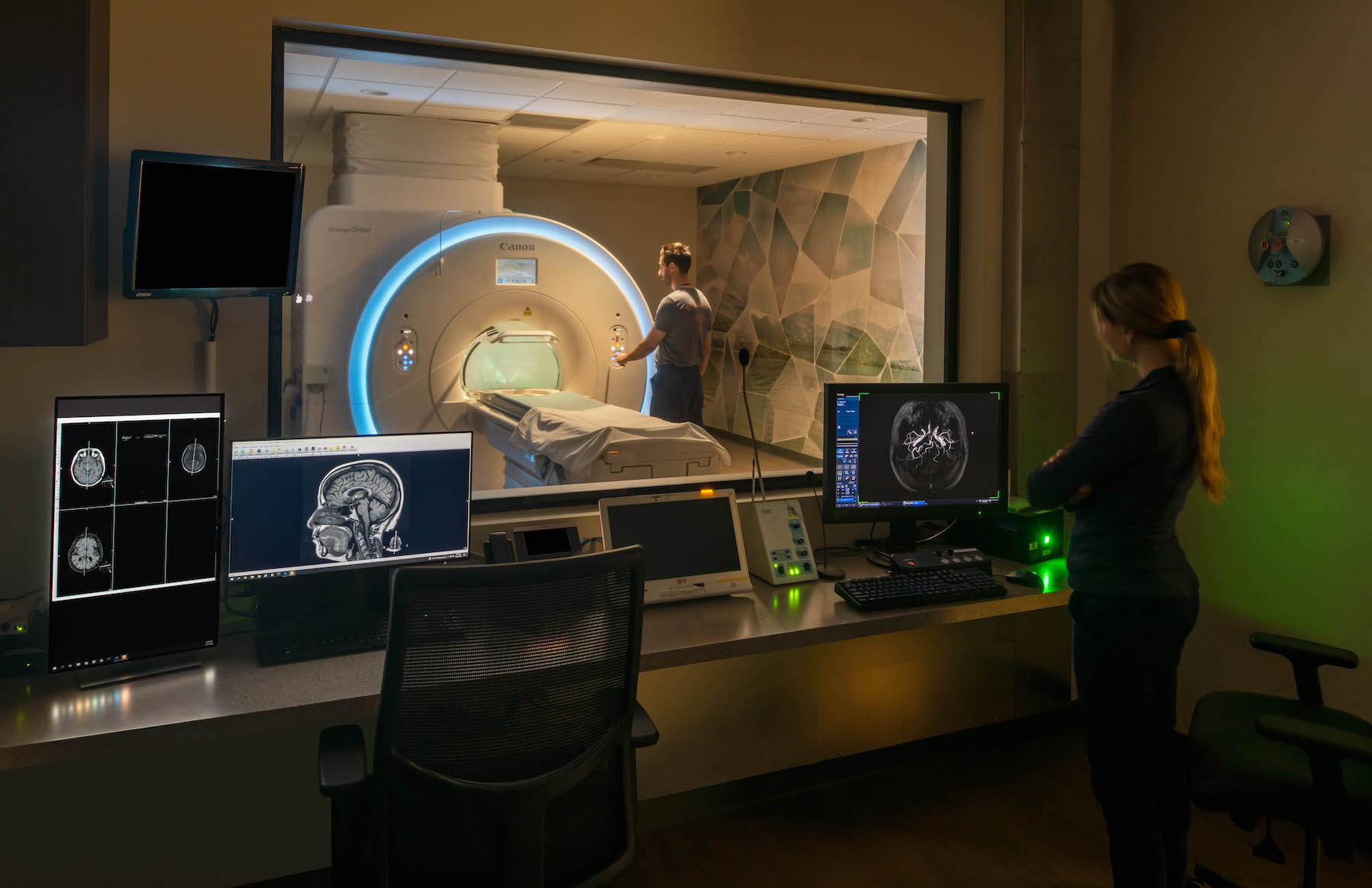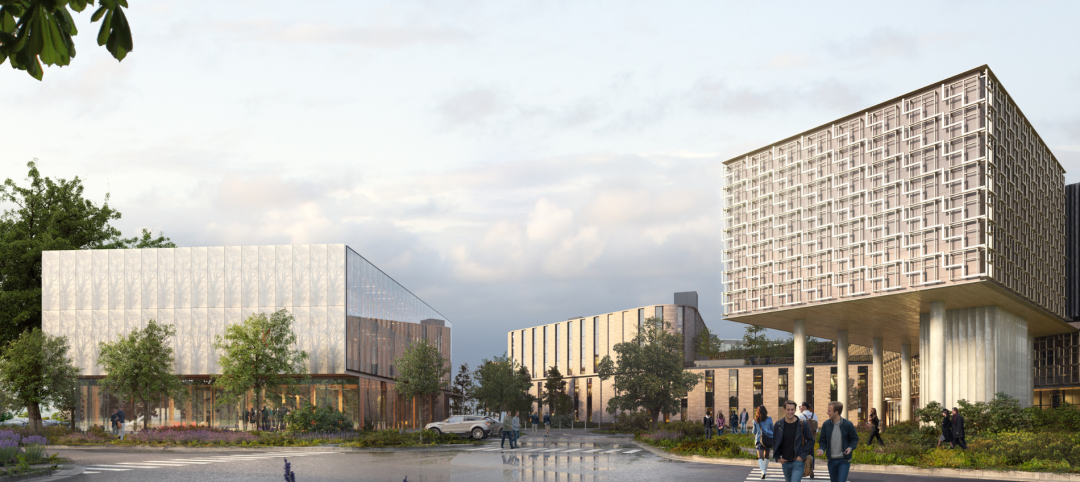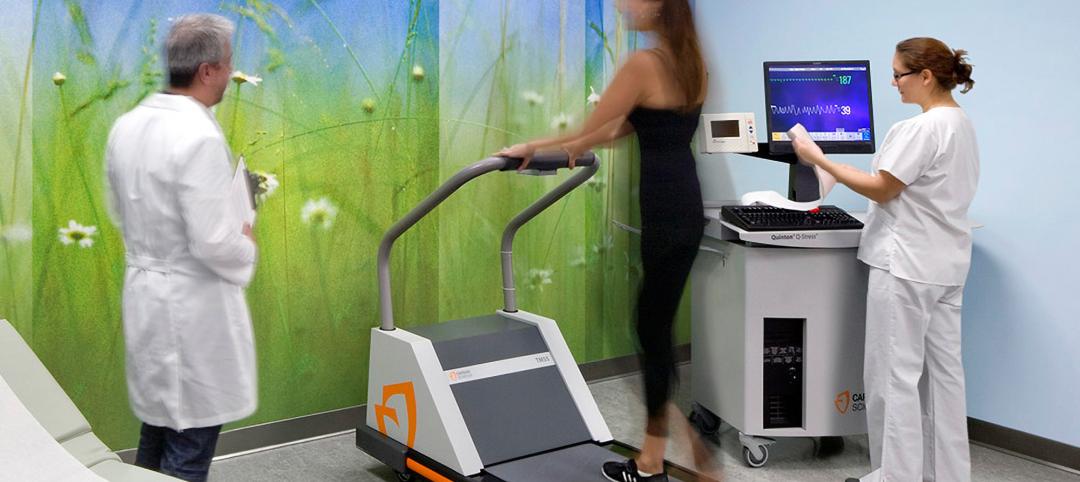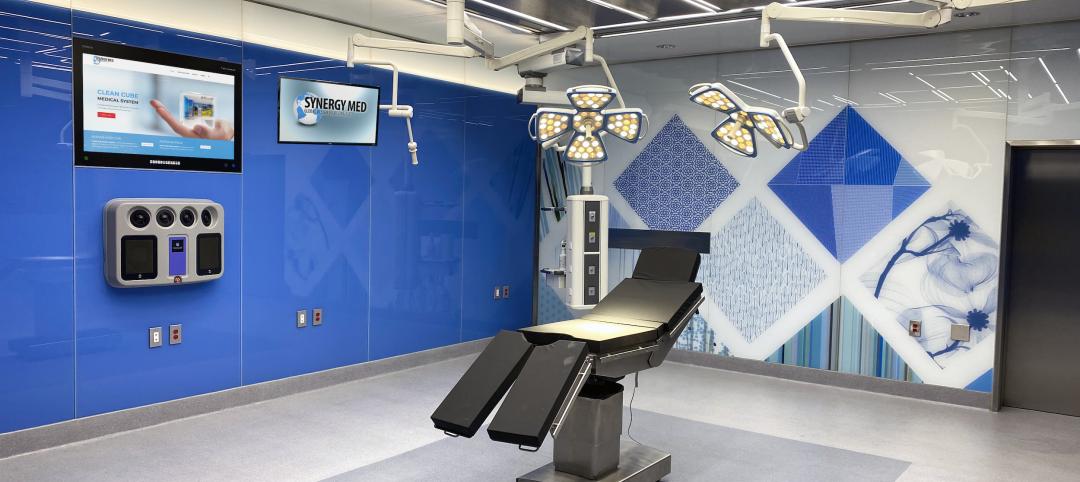Last October, the Edward-Elmhurst Health system opened a 36,100-sf multi-specialty clinic in the Chicago suburb of Woodridge, Ill., on what had been an undeveloped intersection of two busy roads that sees an estimated 55,000 cars per day. The leased building—whose lot was zoned originally for a Walgreens—is near a senior living facility, a gas station across the street, and a forest preserve.
The general contractor Ryan Companies, which owns this building and constructed it from designs by Jensen & Halsted, has benefited from the ongoing trend among healthcare systems wanting to place hospitals, clinics, and medical offices within office-retail corridors that, despite rising vacancy rates during the coronavirus pandemic, still promise exposure to ample vehicular and foot traffic.
The point of such placements, explains Curt Pascoe, Ryan Companies’ Director of Real Estate Development in Chicago, is to make healthcare “more accessible and visible in a highly competitive marketplace.” He describes this as the “retailization” of healthcare that enhances customer convenience. And while this trend has been evident for a while, Pascoe expects it to accelerate as the healthcare sector continues to consolidate with an eye toward bringing care closer to where patients live.
The Edward-Elmhurst Health Center is the second facility that Ryan has built in partnership with that health system, which recently merged with NorthShore University HealthSystem. The Woodridge center includes a walk-in clinic, and services for behavioral health, physical therapy, laboratory, and diagnostic imaging. It also has offices for primary care physicians and specialists.
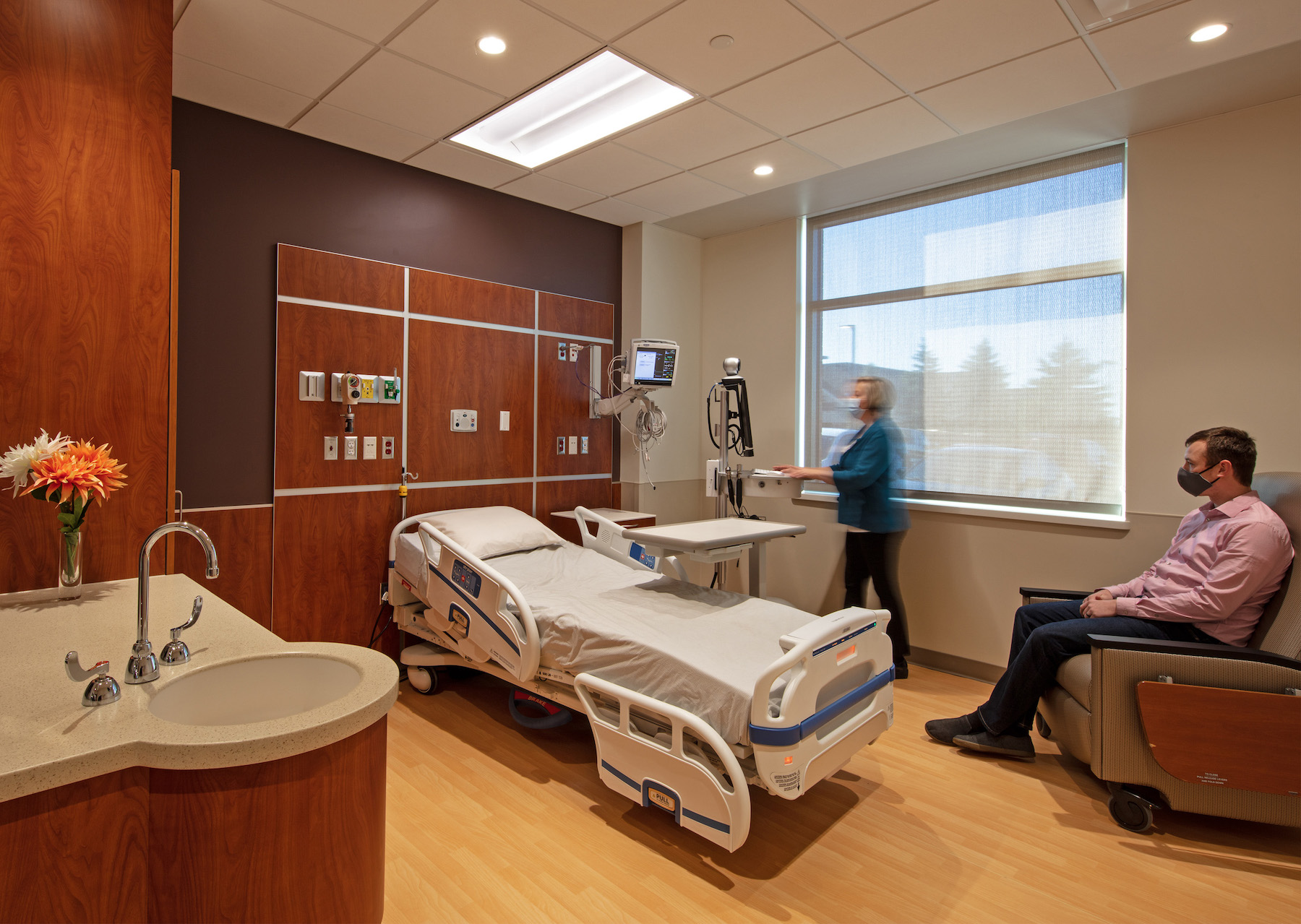
Ryan Companies, which is based in Minnesota, has been engaged by several Midwestern healthcare clients on similar projects that it has recently completed or has in the works. They include:
• A core-and-shell reconstruction of a two-story, 50,000-sf building as part of the redevelopment of the Oakmont Point office park in Westmont, Ill. Compass Health Center, a behavioral health provider, leased the entire building, which opened last August as the second anchor tenant in this 18-acre complex. Designed by Chicago-based Wright Heerema Architects, the building features a 15-foot clear height with floor-to-ceiling windows that overlook a four-acre pond. The center provides psychiatric care for children and adults. Pascoe says this building is situated off a major highway, and the surrounding office park includes several other medical-related facilities.
• Last December, on Port Washington Road in Mequon, Wis., a Milwaukee suburb, Ryan completed construction of the Froedtert & Medical College of Wisconsin Community Hospital, a 17,000-sf microhospital designed by Eppstein Uhen Architects with eight in-patient beds and seven emergency department beds. This microhospital is across the street from the 89,300-sf Froedtert Mequon Health Center, which Ryan developed in 2017.
Mequon is on Lake Michigan’s western shore, where there has been considerable commercial and residential development along Interstate 43, with more planned. To overcome the challenge of finding a suitable site in this area, Ryan Companies combined two former residential parcels, secured zoning changes, and obtained multiple easements. The microhospital is scheduled to open during the first half of this year.
“Our development team hit it out of the park with site selection and meeting with neighbors concerned about impact, while navigating complex municipal permitting,” says Pascoe. Ryan Companies had built a similar 18,100-sf microhospital in Pewaukee, Wis., for this healthcare system, which opened in December 2020.
Pascoe couldn’t discuss other healthcare facilities near retail-office corridors that his firm is currently involved with, except to note that a lot of these so-called off-campus facilities deliver care at lower costs, and can be built less expensively. (He declined to provide construction costs for the abovementioned projects.) While all of Ryan’s recent healthcare projects have been new builds, Pascoe acknowledges the opportunities that adaptive reuse might present to healthcare clients in the future.
Related Stories
Healthcare Facilities | Aug 18, 2023
Psychiatric hospital to feature biophilic elements, aim for net-zero energy
A new 521,000 sf, 350-bed behavioral health hospital in Lakewood, Wash., a Tacoma suburb, will serve forensic patients who enter care through the criminal court system, freeing other areas of campus to serve civil patients. The facility at Western State Hospital, to be designed by HOK, will promote a holistic approach to rehabilitation as part of the state’s vision for transforming behavioral health.
Healthcare Facilities | Aug 10, 2023
The present and future of crisis mental health design
BWBR principal Melanie Baumhover sat down with the firm’s behavioral and mental health designers to talk about how intentional design can play a role in combatting the crisis.
Market Data | Aug 1, 2023
Nonresidential construction spending increases slightly in June
National nonresidential construction spending increased 0.1% in June, according to an Associated Builders and Contractors analysis of data published today by the U.S. Census Bureau. Spending is up 18% over the past 12 months. On a seasonally adjusted annualized basis, nonresidential spending totaled $1.07 trillion in June.
Healthcare Facilities | Aug 1, 2023
Top 10 healthcare design projects for 2023
The HKS-designed Allegheny Health Network Wexford (Pa.) Hospital and Flad Architects' Sarasota Memorial Hospital - Venice (Fla.) highlight 10 projects to win 2023 Healthcare Design Awards from the American Institute of Architects Academy of Architecture for Health.
Designers | Jul 25, 2023
The latest 'five in focus' healthcare interior design trends
HMC Architects’ Five in Focus blog series explores the latest trends, ideas, and innovations shaping the future of healthcare design.
Market Data | Jul 24, 2023
Leading economists call for 2% increase in building construction spending in 2024
Following a 19.7% surge in spending for commercial, institutional, and industrial buildings in 2023, leading construction industry economists expect spending growth to come back to earth in 2024, according to the July 2023 AIA Consensus Construction Forecast Panel.
Healthcare Facilities | Jul 19, 2023
World’s first prefab operating room with fully automated disinfection technology opens in New York
The first prefabricated operating room in the world with fully automated disinfection technology opened recently at the University of Rochester Medicine Orthopedics Surgery Center in Henrietta, N.Y. The facility, developed in a former Sears store, features a system designed by Synergy Med, called Clean Cube, that had never been applied to an operating space before. The components of the Clean Cube operating room were custom premanufactured and then shipped to the site to be assembled.
Sponsored | | Jul 12, 2023
Keyless Security for Medical Offices
Keeping patient data secure is a serious concern for medical professionals. Traditional lock-and-key systems do very little to help manage this problem, and create additional issues of their own. “Fortunately, wireless access control — a keyless alternative — eliminates the need for traditional physical keys while providing a higher level of security and centralized control,” says Cliff Brady, Salto Director of Industry Sectors Engagement, North America. Let’s explore how that works.
Healthcare Facilities | Jul 10, 2023
The latest pediatric design solutions for our tiniest patients
Pediatric design leaders Julia Jude and Kristie Alexander share several of CannonDesign's latest pediatric projects.
Healthcare Facilities | Jun 27, 2023
Convenience ranks highly when patients seek healthcare
Healthcare consumers are just as likely to factor in convenience as they do cost when deciding where to seek care and from whom, according to a new survey of 4,037 American adults about their attitudes and preferences as patients. The survey, conducted from April 19-28 by JLL, in many ways confirms the obvious: that older generations seek preventive care more often than younger generations; that insurance coverage is a primary driver for choosing a provider or hospital; and that the quality of service affects the patient experience.


